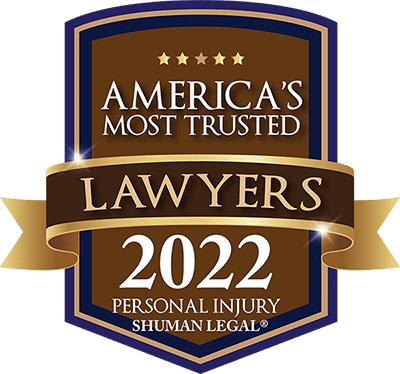What is a Deposition?
It’s a sworn statement taken under oath where you will be asked a series of questions about your accident from the defense attorney or attorneys. They typically can last one to three hours, although sometimes more if it’s a complex case. It’s taken in front of a court reporter, and now they’re either done by Zoom or live in the defense attorney’s conference room. Sometimes it’s also videotaped.
What is the Purpose of a Deposition?
Well, it’s two things. First, the defense attorney wants to assess you as a potential witness on the witness stand. Are you someone who’s believable, who’s just trying to tell their story, or are you someone who’s prone to lie and exaggerate?
Second reason is the defense attorney wants to get as much information from you so that they can prepare their case for trial. Because we believe in your case, it is very important that you do not hide anything and to be truthful.
What are Some Quick Tips for Your Deposition?
First, dress like you would for any job interview, or if you’re going to church. People make instant judgements about you and you want to make the best first impression. Be respectful. Don’t interrupt and don’t argue. Also, don’t make any jokes or use sarcasm because it doesn’t translate well when it’s put down into a written document. Even if asked, don’t give any documentation, or your ID wallet, or anything unless your attorney specifically instructs you to do so.
What are Some Simple Rules for Success?
- Listen very carefully to the question being asked and tell the truth. Even the smallest lie can come back and hurt your credibility.
- Don’t answer too quickly. You want to pause before you answer, for several reasons. You want to make sure that the other attorney finishes their question. You want to give your attorney time to object if necessary, and you want to be able to think for a moment before you answer.
- Just answer the question that’s asked, and stop talking. It’s normal to want to explain things, but that’s something we want to avoid. For example, if you have two children and you are asked how many children you have, your answer would be two. Not, “I have two children. Their names are Sam and Matthew, and they are 21 and 23 years old.” If the attorney wants the additional information, he’ll ask you for it.
What are the Right Kind of Answers to Give?
Yes, no, I don’t know. I don’t remember. I don’t fully understand the question. It’s very important. If you don’t know the answer, don’t guess. If you aren’t sure of the answer, it’s perfectly appropriate to say, “I don’t know, or I don’t remember.”
You’re going to get questions likely about speed, time, and distances in an automobile crash. Again, if you haven’t measured it or you don’t know the exact answer, don’t guess. If you saw your speedometer and saw that you were going 40 miles an hour, it’s okay to say that. However, if you didn’t, then your answer would be, “I don’t know. I didn’t look at my speedometer. However, I was going somewhere between 35 and 40 miles an hour.”
Also, don’t feel pressure to pick a choice if you were offered in a question. For example, if they say, “Was the weather wet or was it dry?” It may have been both, and it’s okay to say that.
Sometimes your attorney may object either for strategy reasons, or to get something on the record. It’s very important if your attorney objects, stop talking immediately. Your attorney may then instruct you to answer the question, and if so, go ahead and answer. However, if your attorney instructs you not to answer the question, then don’t answer it.
You can think of the deposition in three phases, your life before the accident, the accident itself, and then your life after the accident. Before the accident I like to call the background questions. They’re going to ask you about your family life, your work history, your educational history. Why do they do that?
- Well, first of all, they want to know a little bit about you as a person, and second, it gets you comfortable in a deposition. Before you know what, you’re 15 minutes in and you feel more comfortable.
- Then they will get into the facts of the accident. Here, you’ll be asked a long series of questions about that couple of minutes of your life. It’s very important, don’t let the attorneys trick you into answering your question with a guess, and never exaggerate.
- Then you’ll be asked questions about your life after the accident, all about your injuries and the treatment you receive to get better. Once again, it’s important not to exaggerate about your pain, your injuries, or even your loss of income. Just tell the truth.
Near the end of your deposition, you’re going to be asked about things that you either can’t do, or can’t do as well since the accident. This is the one exception where you can volunteer information and you should give examples. For instance, if you can’t get in and out of a bathtub because of your back injury and it’s something you like to do, you would say that. Or if you can’t reach overhead to get a can off of the shelf in the kitchen because of a shoulder injury, or if you like to play tennis and you can’t play anymore, those are examples of how the accident has affected your life and you would want to list as many of those as possible.
Depositions typically go very smooth, and we will be with you the entire time. So take your time and don’t feel rushed. You can always take a break whenever you need one. This isn’t a marathon. So if you are feeling uncomfortable or you need to ask us a question, then just ask for a break. Remember, we are here to help you through the entire process of your personal injury case, including your deposition.
This article is designed to help prepare you. However, your attorney will also walk you through everything I’ve already mentioned and more. If you have any questions or concerns, we are here to help. Give us a call at Shuman Legal® at any time for a free consultation, and we will be happy to discuss your case with you.











